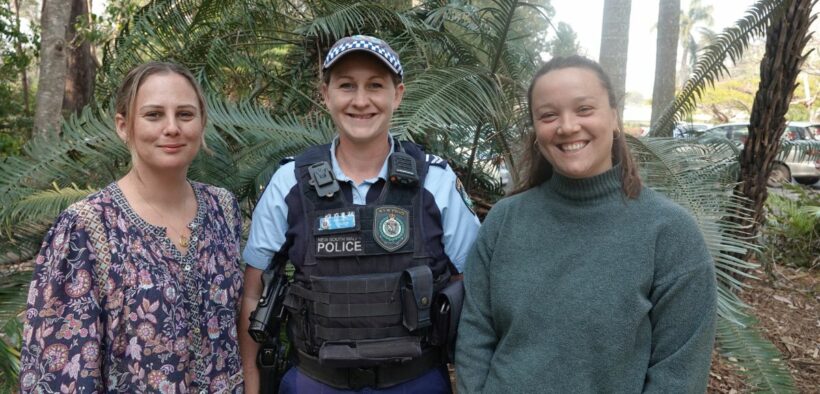More than 700 at-risk young people in northern NSW have been helped by the Youth On Track program to make life changes and avoid contact with the justice system over the past seven years.
In the NSW region of Coffs Harbour-Grafton, the not-for-profit organisation, Social Futures, delivers Youth on Track, which was developed by NSW agencies, including the NSW Police Force and the NSW Department of Communities and Justice, and NSW Health.
Social Futures Program Manager for Children, Youth and Families, Kiara McBeath, said Youth on Track or YOT is for young people, who have had contact with the justice system or are at risk of contact with the system.
“It is often the youth liaison officer appointed by police, who refers the young person to YOT. The average age of participant is 14 years,” said McBeath.
“These young people are often aware that they are heading in a direction that will take them to an unhappy place – incarceration. Many of these young people want to change their lives, but just don’t know how.”
Related:Social Futures creates innovative methods for introducing children to the NDIS
“Social Futures started delivering this program in December 2016, and we are proud to say we’ve seen hundreds of success stories. We have enrolled our 725th participant.”
In 2022–23, 100 per cent of program participants had reduced their criminogenic behaviours at completion of the program.
“We’ve seen young people estranged from their parents heal that relationship and return home. We’ve seen youth disengaged from school, catch-up with their studies and continue on to Year 12,” Ms McBeath said.
“We’ve seen young men and women recognise unhealthy relationships with partners and peers that has led them to drug use and criminal behaviour. They have made the decision to end those relationships and replace them with healthy life choices.”
McBeath highlighted many YOT participants coming into the program had received a formal warning from police or been charged with an offence, or the courts had placed them on a conditional release order in the community. Participants usually stay in YOT for 12 months – there is a minimum commitment of three months.
“They may be prone or vulnerable to offending because they are socially connected to other young people who offend and use drugs and alcohol. So often they are also facing family and housing challenges,” she said.
“Our YOT workers take a holistic approach. They listen to the young person with the aim of developing an understanding of every aspect of their life. They will also connect the young person to the support services they need, such as psychologists, doctors, family counselling.”
“They will talk to them about what makes them vulnerable to offending, including friendships and drug and alcohol use, and becoming disengaged from school.”
McBeath added that they’ve seen so many young people improve their relationships with family and school friends and choose to distance themselves from peers who offend.
“It is also heartening to work with young people who rediscover their faith in the future and start setting life goals, like getting a rewarding job, travelling and having healthy relationships.”
“We help young participants recognise negative thoughts and behaviours, and instead choose positive ones,” she added.
Youth on Track was first trialled in Blacktown, Newcastle and Kempsey almost a decade ago, but is now in the Mid North Coast, New England, Central West and Riverina areas.
The Coffs Harbour‒Grafton region has one of the highest program success rates in New South Wales.
“Our YOT workers also provide practical supports for young people, which can include things like transport to medical appointments, support around communicating with school, and other life essentials,” said McBeath


































































































































































